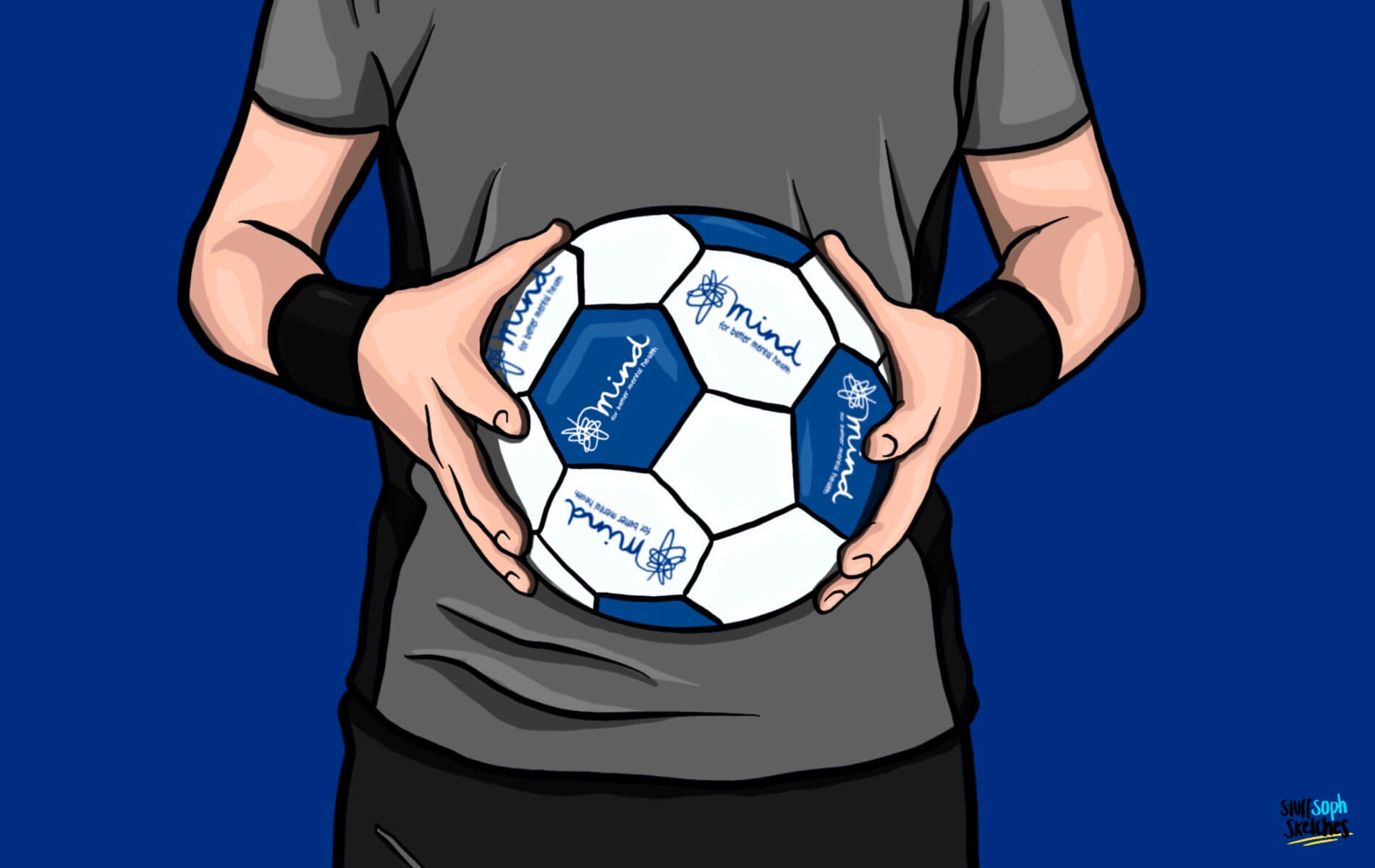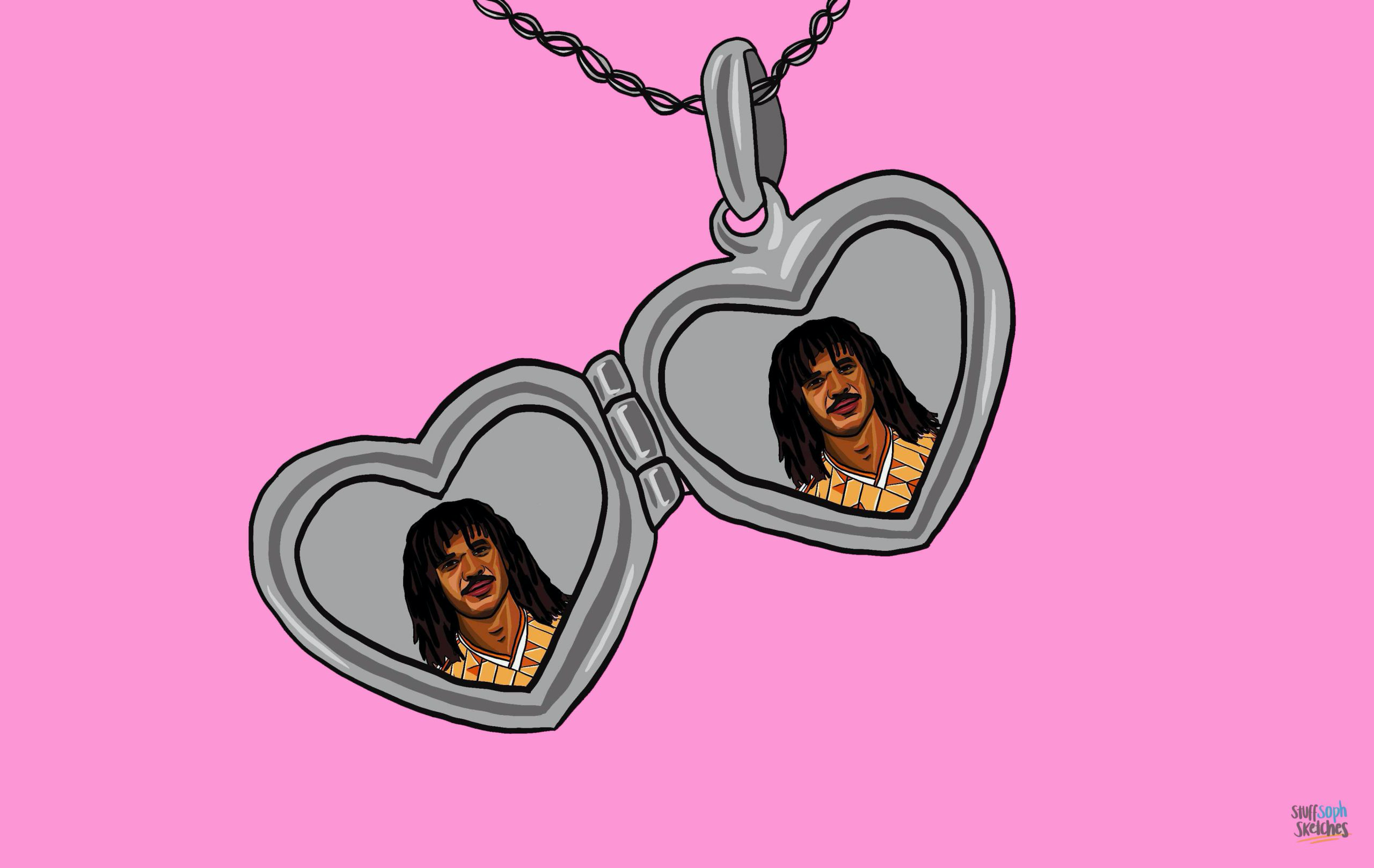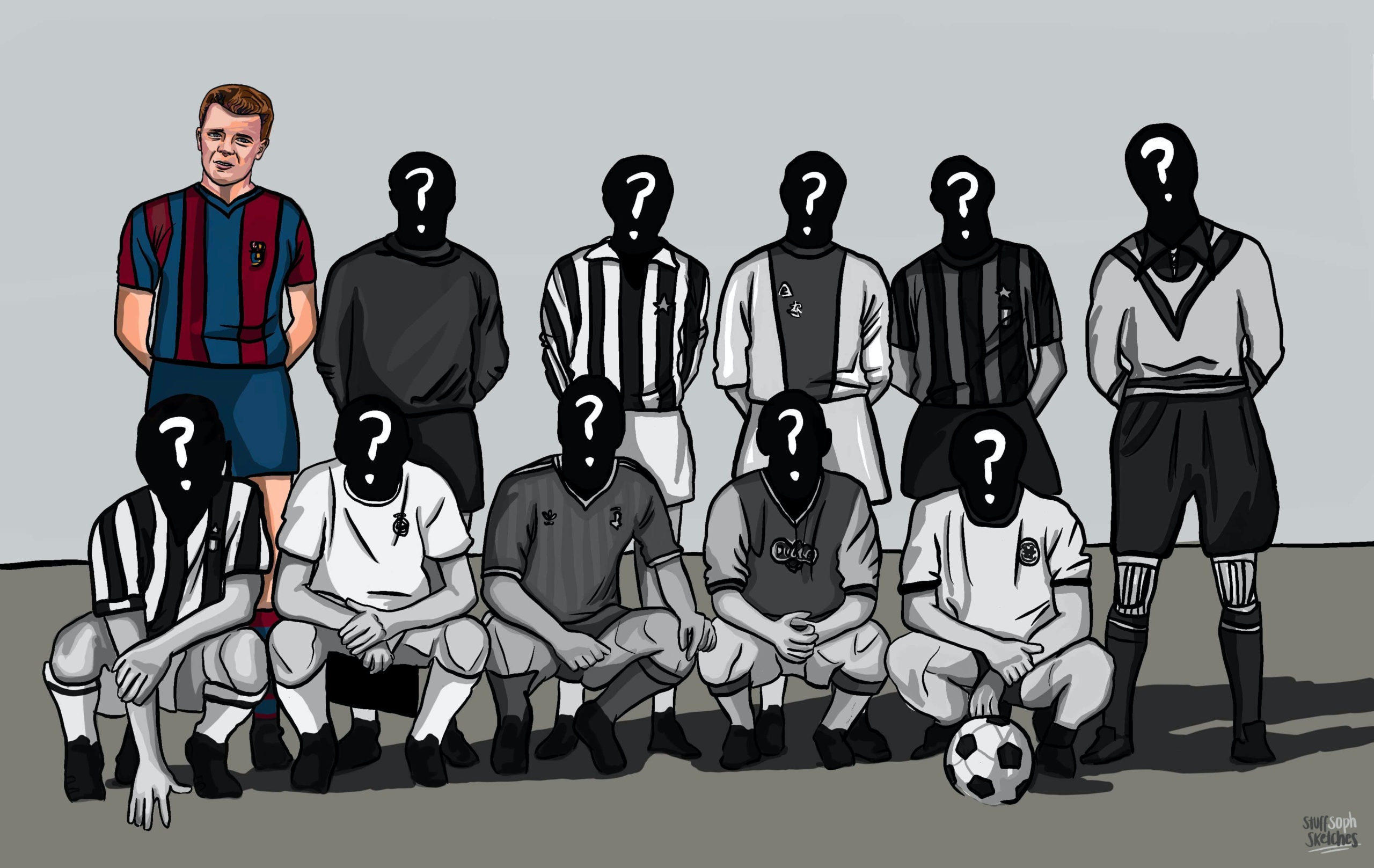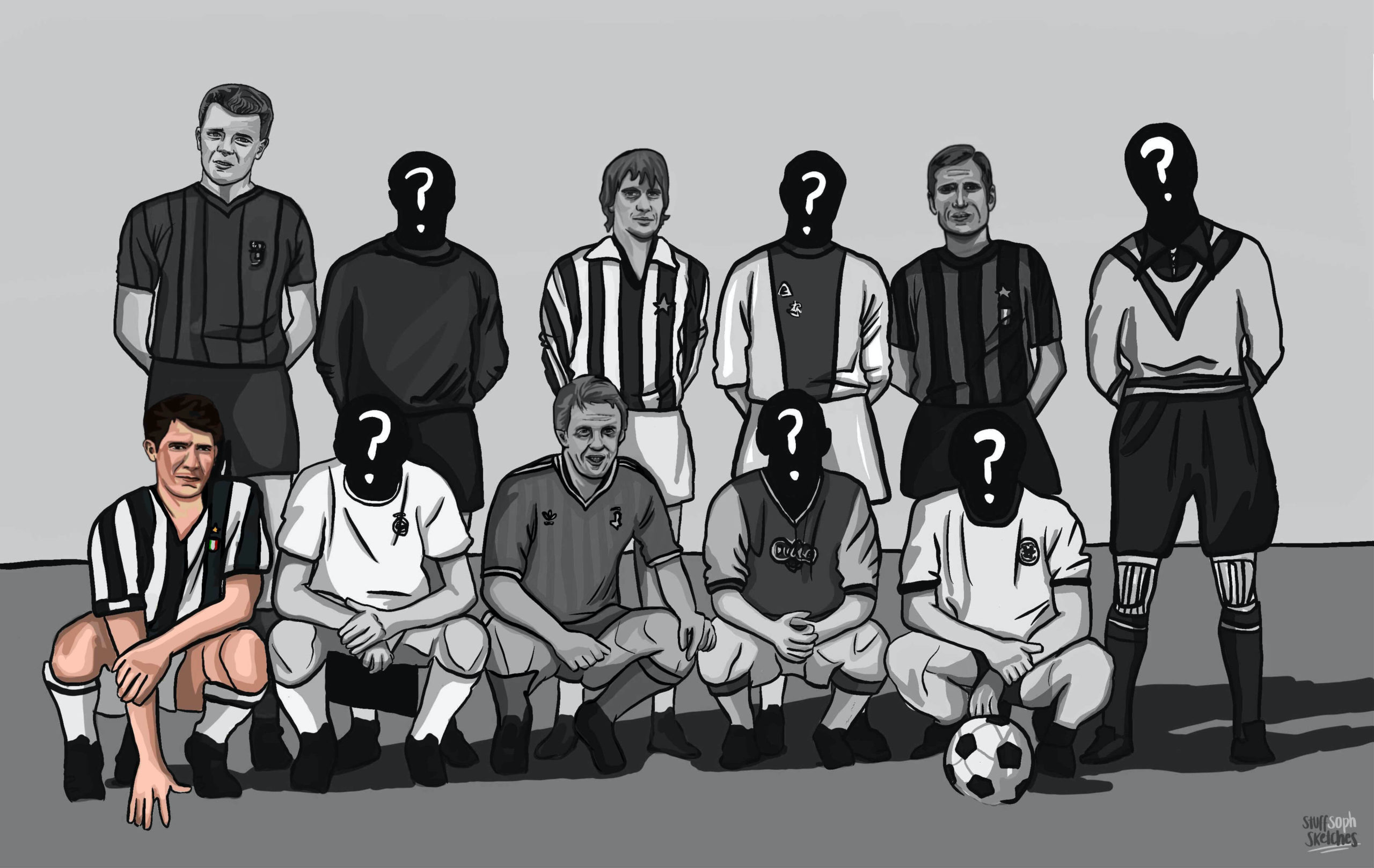In September 2019, I finally accepted that I was unwell and, after visiting my GP, I was diagnosed as suffering with depression. I say ‘accepted’ as if I had a choice, in the same way I convince myself that if I were to man-mark Sergio Agüero, he wouldn’t get a kick. The truth is that for the two years since my Grandmother had died, a dark fog had enveloped me, and I was as blind to my emotional wellbeing as Arsène Wenger was to the need to sign a defensive midfielder in his last few years at Arsenal. It wasn’t so much an acceptance, more of a 7-0 home drubbing at the hands of your bitterest rivals. Broken emotionally, I left my job believing that the world would be a better place without me in it and graded my days, both good and bad, by how often I cried. A good day was one in which I only cried once, and for no reason.
Approximately three months before, I had made my last desperate attempt to convince myself that I wasn’t unwell. I quit the job I was unhappy in but, at the request of a friend, agreed to manage a local district football team – Chilham Football Club. I have loved football for as long as I can remember and have written for The Rondo before about how I fell in love with Ruud Gullit, Nigel Clough and Chris Waddle. On some level, even as unwell as I was becoming, I knew I had to be involved with football in order to stay healthy. Unfortunately for me, my dissent into depression was akin to the journey any football fan takes when their beloved team is relegated: the overriding sense of doom at the start of the season when the results go against you; the self-delusional reaction that you will stay up when your team wins or valiantly draws with a bigger team; the purple patch when you win three out of four and convince yourself that, if results go your way, you will be up to fifteenth in a week. All before your team spectacularly implodes and relegation is confirmed some four games before the end of the season with a disappointing home defeat to a team you had initially tipped for relegation and who currently sit in fifteenth, safe for another year.
I don’t know why I decided to begin talking about it, but I will be eternally grateful that I did.
My decision to quit my job and manage Chilham was my purple patch. I felt good. Work had been making me unhappy and I had been away from football for too long. With blind optimism, I jumped into managing and coaching as well as starting a new job in a school. As any of my Chilham players would assure you, my footballing philosophy demands that the football is passed on the floor, never launched long, with possession maintained at all times where possible; I would rather the ball is lost on the edge or inside my own penalty area, attempting to pass, than for it to be smashed long. Football can be beautiful, and I’ve never accepted that the standard at which you are involved is an excuse for not at least attempting to do things properly. Pre-season started with me attempting to instil these values into my new team and yet, somewhere at the back of my mind, I couldn’t shake the voice telling me that something wasn’t right. Ignoring the voice, I ploughed on at work and at training, attempting to make the players see how good they could be if they just kept it simple and passed to another player in white.
The good thing about working in a school environment is that you get a six-week summer holiday which meant that for those six weeks, I was able to concentrate on the team, I could ignore the nagging voice in the back of my head and, more importantly, I could convince myself that I was doing fine. The team won the pre-season Charity Cup match 4-3 and, although we conceded 3 goals, there were signs that the team were buying into my philosophy and starting to play how I encouraged them to. However, I returned to work a week or two later and, if taking over at Chilham had been my purple patch, returning to school after the summer holidays was my own pre-relegation implosion. My mood sank and every day for the first week back, I sat on the train home thinking that it would be best if I just stayed on until London and from there vanished from everyone’s lives altogether.
At the start of the second week, I awoke with a pain in my arm that only subsided when I held it, which meant that I was unable to work for the first two days of the week. Watching a documentary about the England cricket team on the Tuesday, I sat stunned as Jonathan Trott described with perfect clarity exactly how I was feeling whilst discussing his own breakdown. It finally dawned on me that I was depressed. Visiting the GP the following day confirmed this, and such was her concern that I was advised to visit the mental health nurse that Saturday and I ought to ring up for an assessment with the local therapeutic provider as soon as possible. I foolishly stated that I didn’t need to be signed off from work, instead, I confidently assured her that I would attempt to go to work the next day and, whilst I took the prescription for anti-depressants, I would wait to see if my mood improved before deciding if I would take them or not.
The following day, as I sat crying and curled up on a seat in my bedroom instead of getting dressed for work, my better half, Heather, told me that we would be getting my anti-depressant medication that morning and she would support me to start the therapy assessment before she went to work. Facing up to how you truly feel is a daunting enough task when you are in a good place emotionally – when unwell, every question of the assessment felt like I was reliving all the worst moments of my life. For me, accepting that I was unwell meant that my mood, which was low to start with, dropped even further. The overwhelming sense that I was the most pathetic person in the world seemed to haunt my every waking moment, which, as I wasn’t sleeping, was almost every minute of every day.
Whilst men’s mental health is a topic that is gathering greater traction in the professional sports world, I recommend that everyone should read the tragic story of Robert Enke in A Life Too Short (2010) – a biography written by a friend, who wrestles with the topic of Enke’s career and his battle with depression. At the level I have been involved in football, when a ball hits you square in the face (or worse still, in the crown jewels) and you aren’t up for quickly laughing it off, someone will inevitably tell you to ‘Man Up!’. It was my impression that my mental health was not something I could or would share with my team. My belief was that any admission of a struggle with mental health would be met with a lack of understanding at best or simply derision, something that I would not have been able to handle in my fragile mental state. I believed that John Gregory’s damning verdict of Stan Collymore’s depression in 1999 was the prevalent view of mental illness within my world of football. It should be noted that John Gregory’s comments were made over twenty years ago and since then mental health has become better understood and more widely accepted. I do not know if Gregory’s views are the same today, but I certainly hope not.
Depression is not something anyone should be ashamed of, but you are. The sense of dread at not being able to complete everyday tasks filled me with an overwhelming sense of uselessness. The voice in my head would scream at me every day; ‘You really are a useless piece of shit. You’re pathetic, expecting Heather to look after you’. The things that should and used to bring you joy become obstacles that you can’t face. Football was one such obstacle for me, but I knew that if I was ever going to get better, I needed to have it in my life and so I clung to it, along with my Chilham team, like the desperate man I was. Without believing that things could ever get better, but knowing that if they did then I needed football, I clung to the team like it was the most precious object in the world.
Fear is a debilitating feeling, and I was afraid. I was afraid that I wouldn’t get better, afraid that I was stopping Heather from moving on with her plans and, in my depressed state, I even considered ending the relationship, believing that it would be in Heather’s best interests. ‘You’re dragging her down. It’s bad enough that you are useless, but now you’re stopping Heather from getting on with her life, you’re a weight around her neck’. Perhaps most of all, I was afraid that I was alone. That’s what depression did to me, it stripped me of everything that I believed made me who I am, and it left me feeling isolated in the middle of a storm. But as dark as it was, somewhere, there was still football. Not professional football as we know it, but the game as the pure, beautiful sport that many of us fall in love with and where, for 90 minutes, if you run hard, tackle, pass, shoot and compete with your opposition, you will get what you deserve. Sometimes you win and sometimes you lose, but the game itself is fair; we just have to accept that sometimes the opposition is better than us!
I clearly remember the day in which football became part of my recovery and something more than the life buoy I was grabbing onto to stay afloat. I had been standing in the doorway to my lounge, speaking with Heather, thirty minutes before needing to go to a game, when tears began to flood down my face. This was not a “good” day. “I just want to feel like me, why is it so hard?” I asked Heather, between my sobs. There was, and is, no answer but I forced myself to stop crying, dried my eyes and put my game face on. In the pre-match warm up, while the outfield players were doing their stretches and sprints, I began warming our goalkeeper up. I always considered Jim to be the heartbeat of the team and a real “man’s man” type of guy, so he wasn’t the most obvious confidant on the team, but I found myself beginning to tell him my troubles – I know, a really good warm up for a goalie!
Sitting here, reflecting on my journey with depression, speaking to Jim was the turning point for me from which things began to get better. I don’t know why I decided to begin talking about it, but I will be eternally grateful that I did. Jim’s response helped me realise that for the first time in a long time, I wasn’t alone. I was fortunate that in my battle with depression, I was surrounded by people who loved me, and without whom, I’m not sure I would be here now. I was never alone, but at the time that wasn’t how it felt. Jim was the first person from outside my inner circle, who helped me realise that this was something I didn’t need to face alone. “Men don’t talk about these things and we need too, if you ever need to speak, ring me, anytime, I’m always here to talk”. Here was one of the lads in the team, whose response to my illness I had been unsure of, telling me that we need to talk about these things, and I couldn’t quite believe it! As I was leaving the pub after the game, Jim, away from the other players, repeated his offer. I was amazed and remember telling Heather as soon as I got home.
Training and games throughout the Autumn and Winter kept my mind focused and slowly the fog began to lift; my mood improved, and the life returned behind my eyes as a friend told me with a smile on her face. However, it wasn’t just football that aided my recovery. I began therapy in November and after a session in which we discussed what a “Healthy Lowell” looks like, I now had, and continue to have, a list on paper of what I need to be doing and ought to have in my life to ensure that I remain healthy. Funny enough, at the top of the list is football! In January 2020, Ollie (another former player from my Chilham team) foolishly asked me if I had ever considered writing about football, as he and his friend were creating a football website. I think he was hoping that I would write something about tactics, knowing that I love the strategic side of the game, but instead, he received a profile of László Kubala and suddenly the Forgotten XI feature was born!
Unfortunately, I had to step away from Chilham in September 2020. Football, which had been part of my recovery, is now part of my maintenance, and so every time the team smashed a long ball forward, it was like a little part of my soul died. It reached a point where what I was getting from the game was less than the time and effort I was putting into training and matches. As a result, my mood was worsening and rather than allowing myself to get unwell again, I chose to step away. Instead, I decided to put my energies into writing. When I told the team I was stepping away for a little while due to concerns with regards to my mental health, the messages of support were truly humbling. I was wrong all along as the team reacted admirably to my illness. It is true that I had never really been alone.
If you ever feel like you are experiencing, or have experienced, some of what I have described here, don’t be afraid to talk to someone about it. You will be amazed at the compassion and consideration that people will show for you. You are not alone in this world, people love you – and sometimes, they don’t even know it yet! More importantly, find the thing that helps you feel alive, like football does for me, and when you do, don’t you ever let go of it because one day, it might just save your life.



